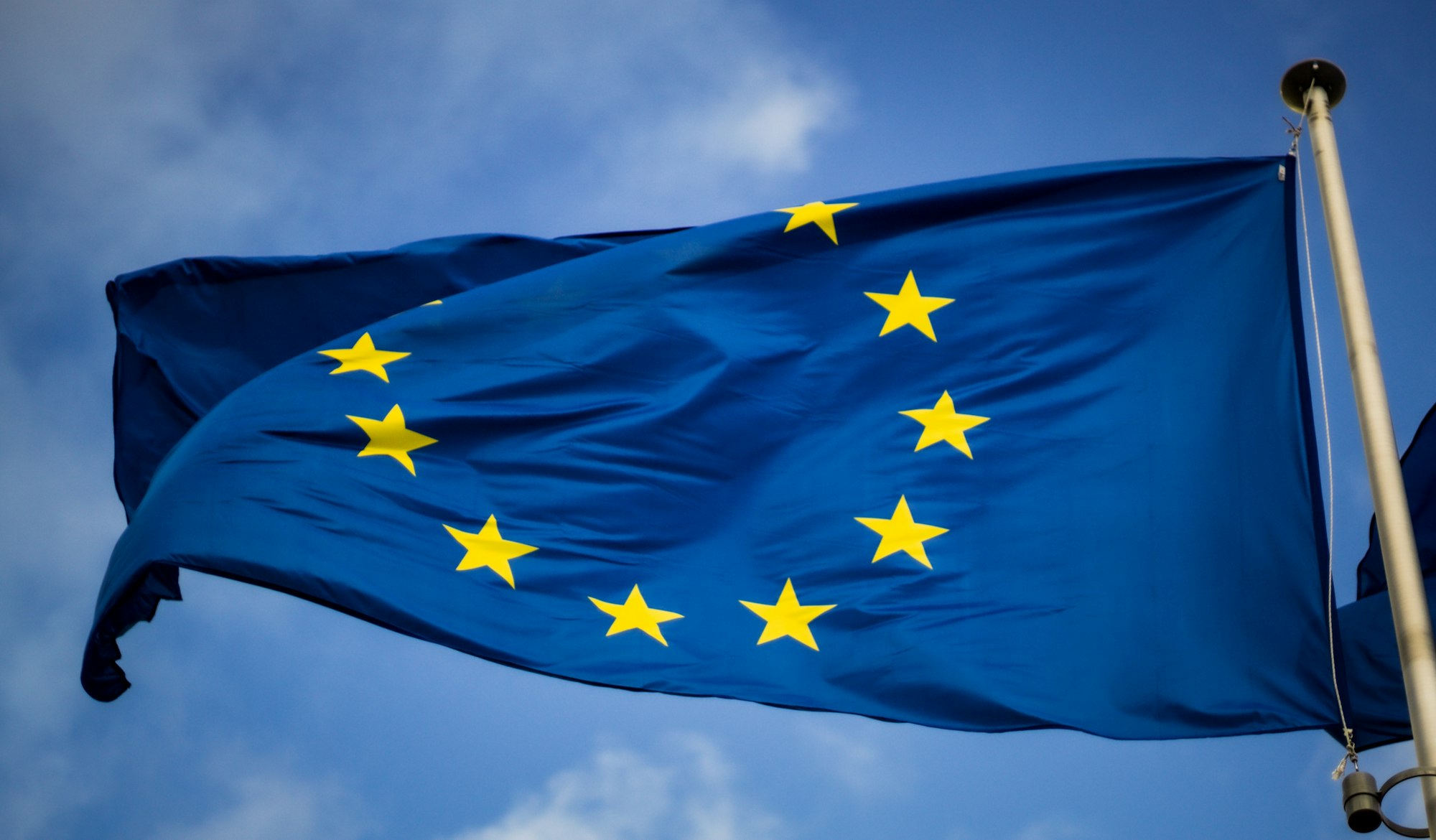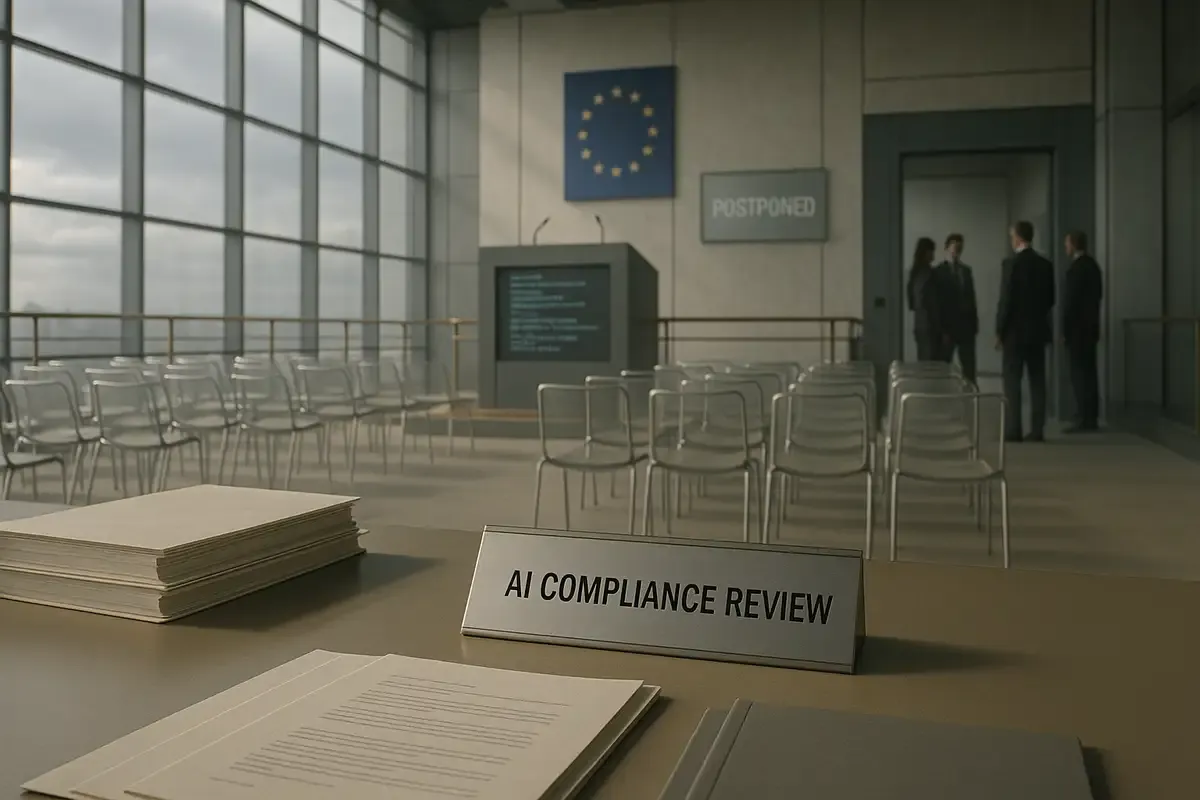💡 TL;DR - The 30 Seconds Version
👉 45 major European companies including ASML, Airbus, and Mercedes-Benz demand EU pause its AI Act implementation for two years.
📊 Companies face August 2025 compliance deadlines but EU still hasn't finished writing the basic guidelines they need to follow.
🏭 Each of the 27 EU member states interprets the AI rules differently, creating costly compliance nightmares across jurisdictions.
🌍 US tech giants like OpenAI and Meta threaten to withdraw from Europe over regulatory burden, leaving European firms with inferior AI tools.
🚀 The revolt exposes how Europe risks regulating itself out of the global AI race before its own rules are even clear.
Forty-five European business leaders just sent Brussels a message: your AI regulations are a mess.
The signatories read like a who's who of European industry. ASML, Airbus, Mercedes-Benz, Mistral AI, and dozens more companies employing hundreds of thousands across the continent. Their collective request is simple but damning. They want the EU to pause its AI Act for two years.
The letter lands as European officials scramble to finish guidelines that should have been ready months ago. Companies face compliance deadlines in August for the world's first comprehensive AI regulation. But they still don't know what compliance actually looks like.
The rules without instructions
The EU passed its AI Act last year with fanfare. The law aims to prevent AI misuse while fostering innovation. It requires companies to disclose how they train their models and respect copyright law. The most powerful AI systems must take additional steps to reduce risks and report detailed information about their architecture.
The problem is implementation. Companies need a "code of practice" that explains how to actually follow the rules. The EU originally planned to publish this guide in May. It's now July, and the code remains unfinished.
The delay stems from fierce pushback. US companies like Meta and Alphabet argue the draft code goes beyond the original law. Meta's global affairs chief Joel Kaplan called it "unworkable and infeasible" and said the company won't sign it in its current form.
The US government has also weighed in. In April, American officials sent letters urging the EU to scrap the code entirely.
A compliance nightmare across 27 countries
European companies face a different problem. They must comply with the same law across 27 different countries, each with its own interpretation of the rules.
Hugo Weber from ecommerce software company Mirakl explains the confusion. The law distinguishes between AI "providers" and "deployers" based on whether someone makes "substantial modifications" to an AI system. But nobody can define what substantial modification means.
"We absolutely need clarification here," Weber says.
This uncertainty creates costly compliance headaches. Companies without deep pockets struggle to navigate different requirements across the EU. The promised harmonization looks more like fragmentation.
The competitive threat
European executives worry about more than regulatory confusion. They fear the rules will drive away American AI companies that provide the tools European businesses need to compete globally.
OpenAI, Meta, and others have threatened to withdraw from Europe if the regulations become too burdensome. This would leave European companies dependent on inferior AI models while their global competitors access the latest technology.
Weber frames it starkly: "There's a real competitiveness risk if European companies can't use the models of OpenAI, Meta, Anthropic, or Gemini. They'll be less performant, less disruptive, less efficient in their use of AI."
The letter's signatories echo this concern. They warn that "unclear, overlapping and increasingly complex EU regulations" threaten European competitiveness and the continent's AI ambitions.
Industry pushback grows
The business letter follows another revolt from European startups. Days earlier, dozens of companies including Synthesia, Lovable, and Voi published their own letter demanding the EU pause AI Act enforcement.
The startup letter focused on different concerns. These smaller companies worry about compliance costs and regulatory uncertainty that could stifle innovation before it starts.
Together, the letters represent a broad coalition of European businesses united in frustration with their own government's signature tech policy.
Brussels under pressure
EU officials now face mounting pressure from multiple directions. American companies and the US government oppose key provisions. European businesses want delays. And implementation deadlines loom just weeks away.
European Commission tech chief Henna Virkkunen told reporters this week she would decide by the end of August whether to pause implementation if standards and guidelines aren't ready.
The admission reveals how far behind schedule the EU has fallen. The world's first comprehensive AI regulation risks becoming a cautionary tale about premature implementation.
The broader stakes
The AI Act represents more than European tech policy. It's a test of whether democratic governments can regulate fast-moving technology without destroying innovation.
Other countries watch how Europe handles this balance. Success could establish a model for responsible AI governance. Failure might discredit regulatory approaches and leave the field to Chinese and American companies operating with fewer constraints.
European officials wanted to export their regulatory model globally, as they did with data protection rules. But you can't export regulations that your own companies won't follow.
The business revolt also exposes tensions between European political rhetoric and economic reality. Officials talk about digital sovereignty while their regulations might drive away the very technologies European companies need to compete.
What comes next
The EU faces uncomfortable choices. It can push ahead with flawed implementation and risk a compliance disaster. Or it can admit the timeline was too aggressive and accept the political embarrassment of delays.
The business letters provide political cover for the second option. Officials can point to industry concerns as justification for a pause they probably need anyway.
But delays come with their own risks. Postponing implementation gives critics more time to attack the law's substance, not just its timeline. American companies might demand broader changes as the price for their cooperation.
The EU also risks looking weak after positioning itself as a global leader in tech regulation. Other countries might question European competence if Brussels can't implement its own signature policy.
Why this matters:
- Europe's attempt to lead global AI governance is stumbling over its own ambitious timeline and bureaucratic confusion
- When your biggest companies revolt against your signature tech policy, the problem isn't just messaging—it's the policy itself
❓ Frequently Asked Questions
Q: What exactly is the EU AI Act?
A: The AI Act is the world's first comprehensive AI regulation, passed in 2024. It requires AI developers to disclose training methods and respect copyright. The most powerful AI models must take extra security steps and report system architecture details. It also restricts certain uses like real-time facial recognition in public spaces.
Q: What are the penalties for breaking AI Act rules?
A: Companies face fines up to 7% of annual sales for violating main AI Act provisions, or 3% for companies developing advanced AI models. For a company with €10 billion in annual revenue, this could mean fines up to €700 million.
Q: Who exactly signed this letter demanding delays?
A: The letter includes 45+ business leaders from companies like ASML (Netherlands), Airbus (France), Mercedes-Benz (Germany), Mistral AI (France), BNP Paribas (France), Deutsche Lufthansa (Germany), and Siemens Energy (Germany). These companies collectively employ hundreds of thousands across Europe.
Q: What's this "code of practice" that's causing problems?
A: The code of practice is a detailed guide explaining how AI companies should comply with the AI Act. Originally due in May 2025, it's still unfinished. Companies need this code to understand what compliance actually looks like before the August deadline.
Q: How does Europe's AI regulation compare to other regions?
A: Europe is first with comprehensive AI regulation. The US has voluntary guidelines but no binding federal law. China has sector-specific rules but no overarching framework. Other countries are watching Europe's implementation to shape their own approaches.
Q: When do different parts of the AI Act actually take effect?
A: The most powerful AI models like ChatGPT must comply by August 2025. High-risk AI systems face deadlines in August 2026 and 2027. Some provisions are already in effect, while others roll out through 2027.
Q: What would a two-year pause actually accomplish?
A: Companies want time to simplify overlapping regulations and create clear implementation standards. They also want to harmonize interpretation across all 27 EU member states, so compliance requirements are consistent from Germany to Greece.
Q: Have EU companies revolted against tech regulations before?
A: Not at this scale. While companies complained about GDPR privacy rules in 2018, they didn't demand implementation delays. This represents unprecedented pushback against a major EU tech policy from the continent's own industry leaders.















